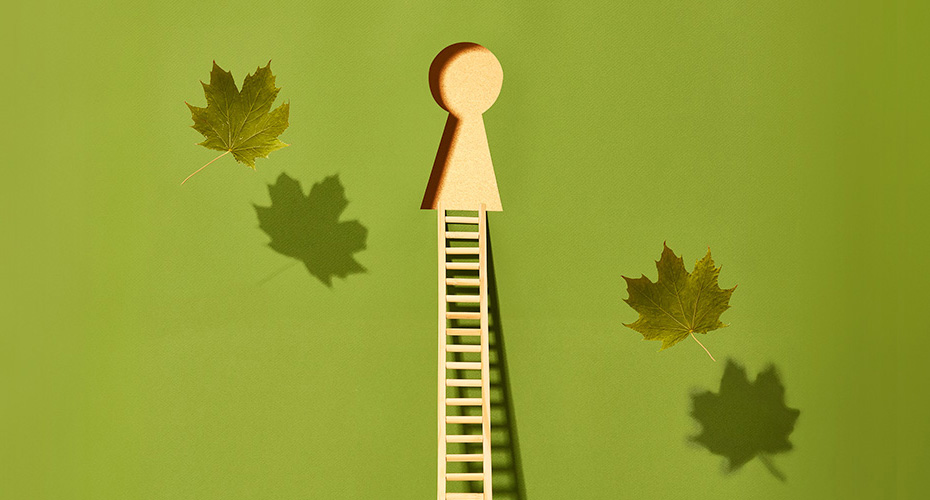Published July 27, 2022 • 5 Min Read
As a Newcomer, your credit score or credit rating can help you get off to a good financial start in Canada. But is it possible to improve your credit score if you don’t have a Canadian credit history? The answer is yes.
Here’s how to start building and improving your Canadian credit score today.
Credit scores and credit history
What are they?
Your credit score — or credit rating — is the number banks and other lenders look at when deciding if they will loan you money or issue a credit card. Credit scores start at 300 and can go up to 900 points. The higher your number, the better your score.
Your credit history is a record of how you’ve managed debt over time, your payment history, and the amount of credit or debt you have.
Why are they important?
If you’re new to Canada, establishing credit can help you get a cell phone plan, rent a new apartment, and may boost the likelihood of being approved for loans and mortgages with better interest rates.
Check your credit score for free. If you’re an RBC customer, you can check your credit score for free through the RBC Mobile app or RBC Online Banking.
How to improve your credit score without a credit history
The way to improve your score is to start building your credit history now. It’s not as hard as you may think. Even if you’re just starting out in Canada, there are several ways to help improve your credit score.
1. Apply for a credit card
A Canadian credit card is a good first step to building your credit history in Canada, so choose a credit card that best fits your budget and spending needs. Many credit cards even offer benefits that can help stretch your budget. For example:
-
Cash back cards: Every time you shop with a cash back credit card, you earn credits based on your purchases. Getting cash back can help you stretch your budget further as you settle into life in Canada.
-
Rewards cards: When you use a Rewards Card, you earn points you can put towards travel, merchandise, gift cards, and even use points to help pay down the balance due each month.
-
No annual fee cards: Some credit cards charge a fee each year to use your card. A no annual fee card lets you enjoy using the card with no yearly fee.
-
Travel cards: Credit cards with travel benefits may be a good fit if you play on exploring more of Canada or travelling to visit friends and family. When you earn points with a travel credit card, you can redeem the points for things like airfare, car rentals and hotel stays.
-
Low-interest cards: These credit cards may save you money on interest costs if you tend to carry a balance month-to-month.
2. Monitor how much of your credit limit you’re using.
The amount of your available credit that you use is called your credit utilization ratio. To calculate your ratio, divide the balance on your credit card statement by your credit card limit. For example, if your card has a balance of $600 and a credit limit of $3,000, your credit utilization ratio would be 20%.
The rule of thumb is to keep your ratio below 30%. The lower your ratio, the better you’re managing your credit, and the better it looks on your credit history.
3. Use your credit card wisely
-
Make regular monthly payments. If you can’t pay off the full amount due, pay at least the minimum payment.
-
Keep your credit utilization ratio low. Carrying a higher balance may hurt your credit score, plus you’ll pay more interest. Consider getting a low interest credit card if you’re regularly carrying a balance on your card.
-
Pay on time each month. It’s essential to make your monthly payment on time. A history of late payments can have a big impact on your credit score.
4. Use your credit card as a purchasing tool
To help build your credit score, you may need to use your credit card at least once a month. Think of your card as a purchasing tool rather than a way to borrow money. Carrying a balance month-to-month on your card means you’ll be paying interest. Carrying a balance might also increase your credit utilization ratio.
When used wisely, a credit card is one of the easiest ways for newcomers settling in Canada to build their credit score, even without a credit history. Newcomer credit cards like those offered by RBC can help get you off to a great financial start.
Are you ready to build your credit score? Choose a credit card that’s best suited for you by speaking to one of our Newcomer Advisors to get started.
This article is intended as general information only and is not to be relied upon as constituting legal, financial or other professional advice. A professional advisor should be consulted regarding your specific situation. Information presented is believed to be factual and up-to-date but we do not guarantee its accuracy and it should not be regarded as a complete analysis of the subjects discussed. All expressions of opinion reflect the judgment of the authors as of the date of publication and are subject to change. No endorsement of any third parties or their advice, opinions, information, products or services is expressly given or implied by Royal Bank of Canada or any of its affiliates.
Share This Article






